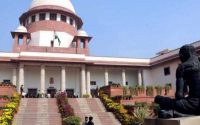$100 Website Offer
Get your personal website + domain for just $100.
Limited Time Offer!
Claim Your Website NowHumans first, not animals: Court
Source:- indiatimes.com
KOCHI: The high court held that if a dangerous animal poses threat to human lives, a public servant, such as a police officer, should give preference to saving human lives. Even if the public servant’s decision to kill the animal turns out to be wrong, he is protected under law and cannot be held liable, the court said.
The ruling was given by a division bench after considering an appeal filed by T K Muhammed Shafeeq, who had shot dead an elephant that ran amok and killed a man while he was the sub-inspector of Tirur. The elephant was moving towards a fishing village at around midnight when he killed it. On a petition filed by the elephant’s owners, a lower court had held that the SI was liable to pay compensation.
Setting aside the lower court’s decision, the high court said the right to life, which is guaranteed in the Constitution, stands above the various laws enacted for the protection of animals in cases of conflict.
The judgment stated: “All other laws are made subservient to accomplish the right to life guaranteed under the Constitution. If that be so, the public servant, who is on duty, to prevent or obviate danger to human life caused by a dangerous animal, must give preference to protect life of human beings, which stands guaranteed under the Constitution, rather than the life of an animal. He can shoot the animal to save a human life, if he is empowered and authorized to use the firearm, under law; but, the circumstance must justify the shooting of the animal.”
The court said that if the decision of a public servant to kill a dangerous animal turns out to be wrong later on, he cannot be held liable. “In a crucial situation where the entire people in a locality is apprehensive of danger caused by a dangerous animal, it is obligatory on the part of the public servant who is entrusted with the duty to protect the life and property of the human beings to think about the way in which the life of the people can be protected. Even if the act done was found not proper, it is only an error in judgment, if the act was done with good faith under the permission granted by the competent authority and he cannot be held liable for the same,” said the judgment.


